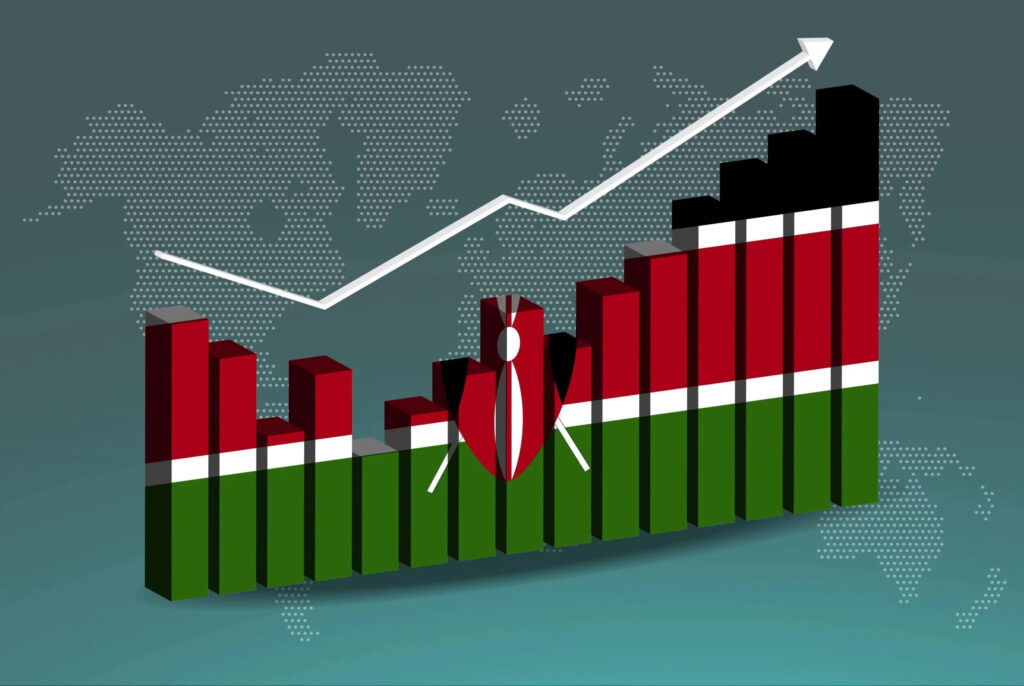If you earn between Sh46,356 and Sh184, 394 in a month, you are part of Kenya’s increasingly beleaguered middle class. You are a hero. Not only are you the glue that holds our country together, but you are also the engine that keeps our economy moving forward.
You employ a shamba boy in your village or a nanny in your urban house. You buy meat every third or fourth day.
On a bi-monthly or quarterly basis, you troop to Gikomba to refresh your wardrobe. In between, sometimes every two weeks, you buy the random mitumba from your neighborhood. Because of you, the mitumba business employs roughly two million Kenyans. As revealed in a study by the Institute of Economic Affairs and Mitumba Consortium Association of Kenya in 2019 91.5% of households buy second-hand clothes worth Ksh. 1,000 and below. Because of you, the Kenyan middle class, this sector thrives.
Almost daily, you buy that roast maize or those mangoes. Can you see how your money is driving Kenya’s economy forward? You, the loyal member of Kenya’s middle class, are indeed a hero. Today I celebrate you.
According to a report by Kenya Fight Inequality Alliance, just 8,300 individuals in Kenya own the same wealth as the rest of the country’s over 45 million people, and the richest 10 per cent earn 23 times more than the poorest 10 per cent. This ultra-rich, together with the upper class rarely spend their money on Kenya’s informal sector, leaving the middle class as the fuel that powers this vital sector.
According to the Economic Survey 2022, the informal sector accounted for 83.3 per cent of total employment outside of small-scale agriculture and pastoralist activities. Further, most of the goods produced by this sector are consumed by the middle class. As such, it is fair to conclude that without the Middle Class, eight out of ten Kenyans would be bereft of meaningful livelihoods!
Despite their pivotal role in our society and economy, the Middle Class has remained largely forgotten by successive Governments. And today, according to the World Bank, one third of our Middle Class is only one economic shock away from sliding back into poverty.
As per the Bank’s macro poverty Outlook, 18.8 million or 34.3 percent of Kenyans, live below the poverty line of Sh220 a day. Millions more are still in the low-income category even if they are above the poverty line. It is therefore understandable that successive governments have focused on uplifting the low-income Kenyans. Indeed, the current government arguably won the 2022 elections because of its laser focus on the plight of these ‘hustlers’.
In this regard, I wish to submit that one of the best ways through which the government can uplift the hustlers from poverty is by strengthening the middle class. By putting more money in their pockets, we will enable them to keep spending on the informal sector that employs eight out ten Kenyans. We can do that by strengthening the local manufacturing sector that employs a huge chunk of the middle class. In essence, the strength of Kenya’s middle class is directly proportionate to the strength of Kenya’s manufacturing sector.
Another sure bet for strengthening the middle class is through an exponential increase in public sector jobs.
During the campaigns, then Deputy President William Ruto, promised that, if elected, his government would hire 116,000 teachers. But in January, amid tough economic times, the government drastically scaled down that number to 30,000 teachers. It is gratifying to note that the government has allocated Sh600 billion to the education sector in its proposed Sh3.6 trillion budget, I suggest that a sizable percentage of this money be spent on recruiting thousands of new teachers. That will go a long way in strengthening the middle class, especially in rural areas, which will in turn boost the hustlers! Think green act green.!



